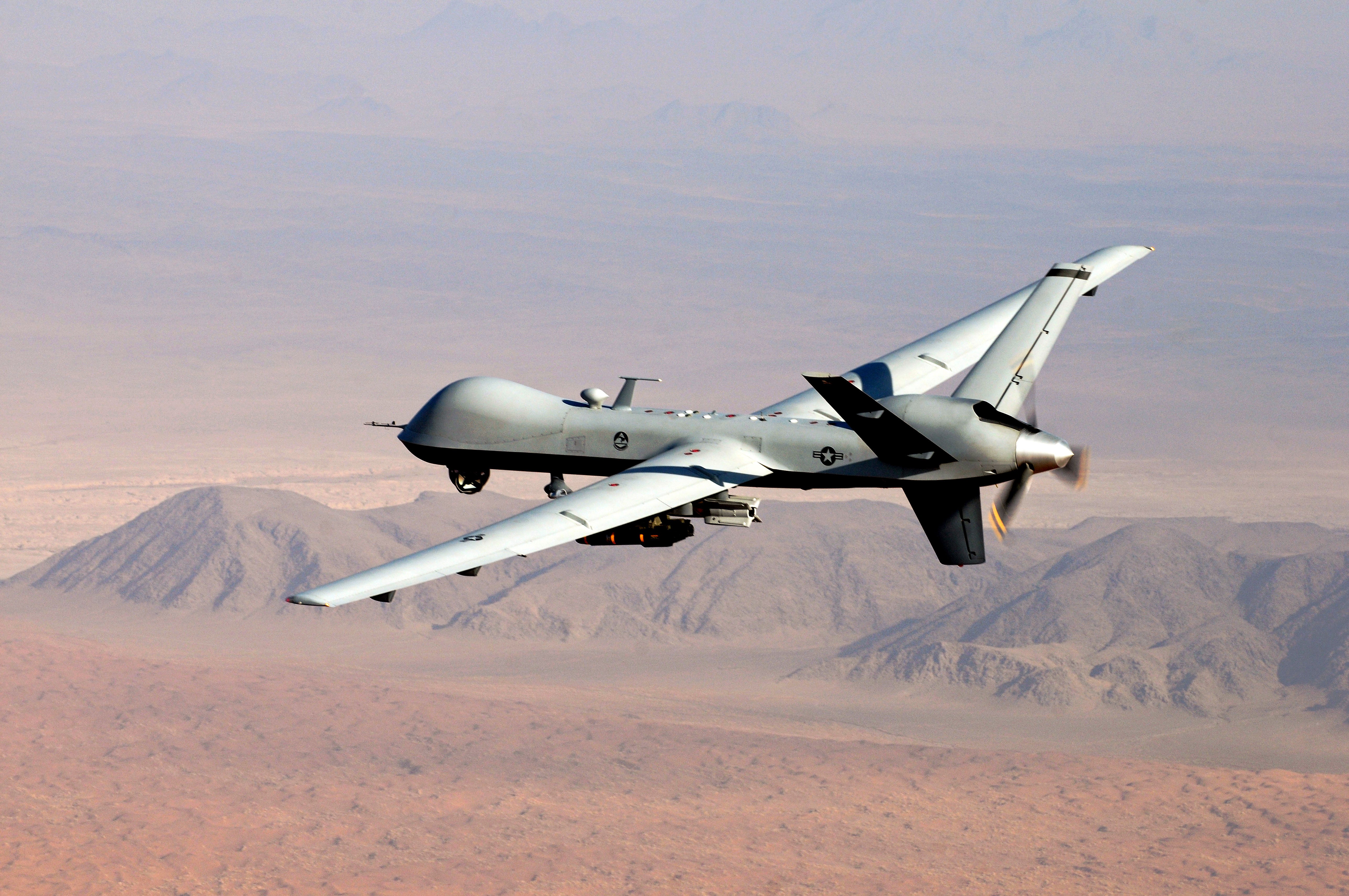New anti-drone laser weapon hub to be set up in Scotland
The anti-drone lasers – which emit invisible beams – are small enough to be fitted to vehicles

Scotland will be home to a European hub that is set to open next year to help meet the growing demand for laser weapons which target attack drones.
The planned “advanced laser integration centre” in Livingston – about 15 miles from Edinburgh – will focus on the testing, fielding and maintenance of defensive high-energy laser (HEL) weapons, Raytheon UK said.
The ongoing war in Ukraine highlighted the threat posed by drones, the defence and intelligence technology firm said.
Such drones, also known as unmanned combat aerial vehicles (UCAVs) or combat drones, can be used for intelligence, surveillance, carrying missiles and bombs, and directing or correcting artillery fire.
The drones are under real-time human control – with varying amounts of autonomy – but have no onboard pilot.
Raytheon’s anti-drone weapons, which emit invisible laser beams, are small enough to be fitted to military vehicles.
Annabel Flores, the company’s president of electronic warfare systems, told the BBC that “demand is spiking for cost-effective lasers” that are able to defeat “asymmetric” threats from drones, rockets and mortars.
Speaking from the Farnborough Airshow, Ms Flores told the broadcaster that HEL weapons had cost advantages.
While military ordnance can be costly, she said drones and quadcopters are in the £84 range.
Raytheon UK has already spent about £20 million on developing the Livingston site where the number of jobs could later increase to “hundreds”, the BBC reported – adding that the firm has not revealed how much it would ultimately spend.
Last year, Raytheon was awarded a demonstrator contract to provide a HEL weapon system to the Ministry of Defence (MoD) to be installed on the UK Wolfhound land vehicle, the company said.
The MoD announced that a £160m contract had been awarded to Raytheon UK to support the training and development of Royal Navy personnel at Scotland’s HM Naval Base Clyde.
Britain’s armed forces began trialling the use of laser weapons last year.



Join our commenting forum
Join thought-provoking conversations, follow other Independent readers and see their replies
Comments